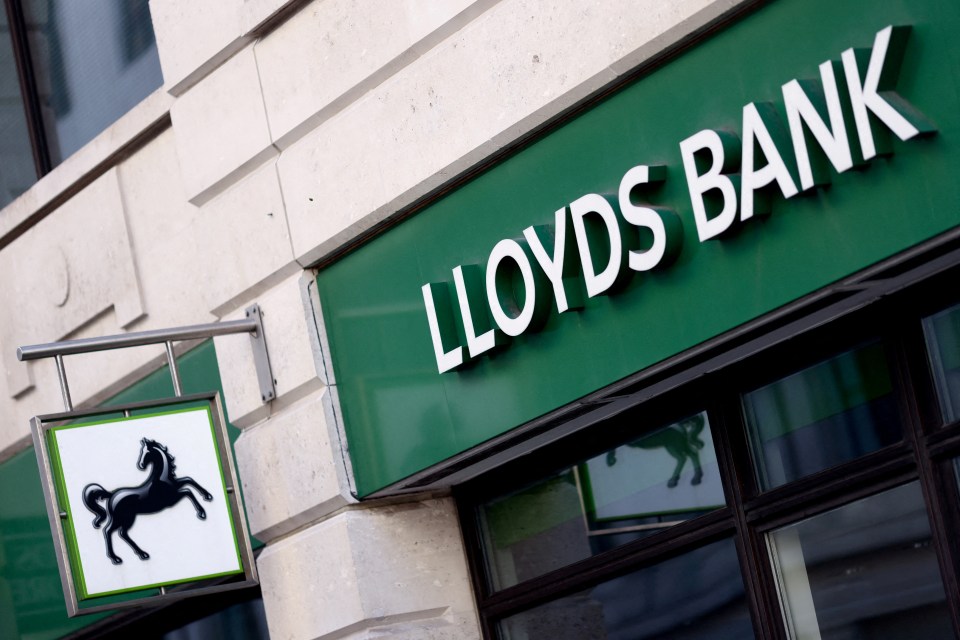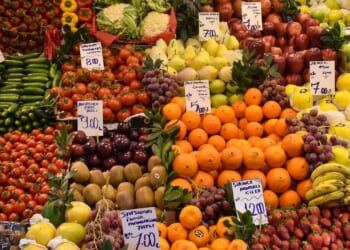A MAJOR high street bank with 27million customers will make a huge change to fees.
Lloyds Bank has announced a shake-up to its Club Lloyds package bank account.
This is a type of current account that provides extra benefits compared to their standard account.
It runs like a typical current account allowing direct debits, standing orders, and other standard banking operations.
However, it also offers a range of lifestyle benefits such as a Disney plus subscription, cashback rewards, and access to linked savings accounts with preferential interest rates.
Customers are also charged a £3 monthly fee, but this is waived if you deposit £2,000 or more into the account.
By June 2, this will be hiked to £5 for users of the service.
That means customers could end up paying an extra £24 a year if they do not meet the £2,000 threshold.
This change will also affect customers with Club Lloyds Silver and Club Lloyds Platinum current accounts, as they are charged the standard Club Lloyds monthly fee in addition to their respective account fees of £11.50 per month for Silver and £22.50 per month for Platinum.
But Lloyds is also rolling out several perks for Club customers.
From today, April 14, Club Lloyds customers will no longer pay foreign currency or cash withdrawal fees when using their debit card abroad.
Lloyds Bank will increase the interest-free allowance on Club Lloyds arranged overdrafts from today.
These services are already available for Club Lloyds Silver and Club Lloyds Platinum current accounts.
An overdraft enables you to borrow money through your current account if you run out of cash.
Typically, there’s a fee for going overdrawn, which increases the more you borrow.
However, some banks, including Lloyds, provide interest-free buffers, meaning no interest is charged until your borrowing exceeds a certain threshold.
From today, Lloyds will also raise this threshold, so you won’t be charged daily interest on the first £100 you borrow – up from the current £50 limit.
OTHER BANK CHANGES
Come May, Nationwide plans to make some changes for its current account and FlexDirect users.
That includes lowering the fee for sending large amounts of money to someone in the UK through CHAPS.
CHAPS stands for Clearing House Automated Payment System and it is used by customers who need to send money between banks in the UK.
Nationwide currently charges customers £20 to send large amounts of money between UK bank accounts but it said from May it will lower this to £15.
Types of savings accounts
THERE are four types of savings accounts fixed, notice, easy access, and regular savers.
Separately, there are ISAs or individual savings accounts which allow individuals to save up to £20,000 a year tax-free.
But we’ve rounded up the main types of conventional savings accounts below.
FIXED-RATE
A fixed-rate savings account or fixed-rate bond offers some of the highest interest rates but comes at the cost of being unable to withdraw your cash within the agreed term.
This means your money is locked in, so even if interest rates increase, you are unable to move your money and switch to a better account.
Some providers give the option to withdraw, but it comes with a hefty fee.
NOTICE
Notice accounts offer slightly lower rates in exchange for more flexibility when accessing your cash.
These accounts don’t lock your cash away for as long as a typical fixed-term bond account.
You’ll need to give advance notice to your bank – up to 180 days in some cases – before you can make a withdrawal or you’ll lose the interest.
EASY-ACCESS
An easy-access account does what it says on the tin and usually allows unlimited cash withdrawals.
These accounts tend to offer lower returns, but they are a good option if you want the freedom to move your money without being charged a penalty fee.
REGULAR SAVER
These accounts pay some of the best returns as long as you pay in a set amount each month.
You’ll usually need to hold a current account with providers to access the best rates.
However, if you have a lot of money to save, these accounts often come with monthly deposit limits.








